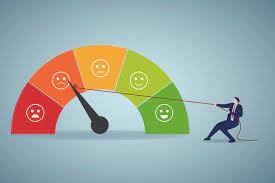The fact that you have clicked on this article indicates to me that you either (1) may have a bad credit score or (2) you are interested in understanding your credit report.
What is a Credit Score? A credit score is a numerical expression based on a level analysis of a person’s credit files, to represent the creditworthiness of an individual. A credit score is primarily based on a credit report, information typically sourced from credit bureaus.
Why is a Credit Score important? Its important because Banks use this score to determine (1) what type of borrower you currently are and (2) what type of terms and conditions might be offered to you for a new proposed credit facility. If you have an excellent credit score then it indicates to the Bank that you are a good potential client i.e. low risk of defaulting on any loans they may extend to you.
Admittedly this is not the only factor used to determine if you are approved for a credit facility but a good credit scoring can either make or break your opportunities for borrowing. Lets just say some financial institutions actually have policies that prevent them from lending to individuals with poor credit scoring. It therefore means that this report can stop the loan assessment process very early in the game. It can also hinder your ability to get the best terms and conditions.
What if you currently have a bad credit score? Is there anything you can do to improve it? There sure is – see below some tips on improving your credit scoring:-
- Make payments on past-due accounts that haven’t gone into collections first. Getting current on these is more important, as you want to avoid having your accounts sent to collections, if and when possible. Accounts already in collections will remain on your credit report for 5 years regardless of repayment.
- Contact those accounts in collections to see if it’s possible to start paying back the debt, but make sure you notify the creditor, as well and get proof of payment.
- If you realize that you are having difficulty paying back your debt obligations get ahead of the game. What if you lost your job? Speak with your Bank and see if an “interest only period” can be given until you get back a job or if a lower monthly payment can be offered during this time. Keeping in contact with your financial institution when hard times hit is always the best option as it ensures that you can be afforded any opportunity to keep your debt current and your credit score in order.
If you found this article useful please comment below! Let me know what other financial topics you would love to have more information on.
Until next time LinkedIn family – Take Care & God’s Blessings on all of you as we approach a New Year!
If you have any questions please do not hesitate to contact us at support@afbconsultingservices.com

